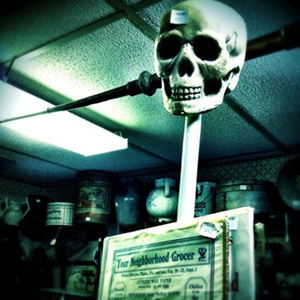The lights were out. Not just in houses. I mean everywhere. The entire city of Morristown, NJ didn’t have a single light on. And as I drove up and parked my car, I realized that I was going to be stuck in this place for a quite a while.
Hurricane Irene packed many surprises. For Morristown, the surprise was that their new state-of-the-art, flood and wind proof underground transformer complex was now an underground lake of flooded equipment. (Can you say, lawsuit?) So with little information and much chaos, the town tried to function without traffic signals, stairwell lights, train service or even basic human needs that we can’t survive without…like the Internet, for example. (Gasp!)
I park my car in Morristown at a friend’s garage adjacent to their apartment complex, to avoid the insane parking costs of Manhattan. And while I have been to this place many times, I can’t recall ever having seen a resident. It always seemed kind of dead to me.
For instance, there is this beautiful courtyard at the building with a Koi pond (conveniently absent of any fish which kind of negates the Koi thing, but whatever), as well as an amazing gas grill system set in stone, with beautiful landscaping all around. Yet it always was empty when I would visit.
So imagine my surprise when I arrived and the courtyard was buzzing. Residents, some of whom had never even met each other before let alone me, were talking over rapidly warming beer, while grilling all the food they could before it spoiled. The camaraderie was infectious. And even though I was a stranger, I was welcomed into the laughter and community. It was amazing!
Now given this beginning, you can see how this story could turn into a heartwarming tale about how people came together in the face of adversity and that we all should turn off our electronics once in a while and sing our communal Kumbayas. Except as the alcohol continued to be consumed, this sense of needing something more to do also began to grow. And then things got a little weird.
As full darkness set in, the laughter increased with a tinge of anger and helplessness. Why was the building so dark? Why weren’t emergency lights working? Why were all the gates flung open for any criminal to walk in?
Then came the furniture burning.
One of the residents decided that we needed a bonfire in the courtyard, which after a bottle of wine and several beers sounded very nice indeed. So he stumbled upstairs and started bringing down his old bedroom furniture, piling it in the center of the courtyard and breaking it apart for kindling, much to our amusement. Then with excessive amounts of lighter fluid and copious coaxing from the crowd, the blaze was aflame.
So, about this time the cops showed up.
Now you would think law enforcement officials would say something to the effect that, “It’s against city ordinance blah blah blah to set an open fire within the city limits.” Instead, these harried protectors of the peace were frantically responding to emergency call after emergency call, one of which had come from this very building. So we got a, “Just be careful with that fire, guys.” and off they went to search the hallways with flashlights.
The seeds of lawlessness had been planted. Even the police were turning their back on the law as they prioritized situations. Anything was possible.
Which is when someone jokingly said, “Shit, let’s go loot stuff.”
We all had a huge laugh at this suggestion. Then we all got real quiet. Then we had another, more nervous laugh about it. Then we got even more quiet. Because suddenly we realized: It really was just that easy.
Whether it’s London’s recent riots or U.S. college kids breaking into shops after a sports team wins, we tend to sit on our civilized high horse and cast judgment on “those animals.” Indeed, I still would still say such behavior is reprehensible. But all of us walk a razor thin line between order and chaos. And coming face-to-face with that line is sobering. Very sobering.
All it takes is one act of lawlessness to get people thinking about what line we should cross next. And then all the law in the world can’t stop the avalanche of chaos that might ensue. The only thing to hold back the tide is the frail decision-making power of stupid, drunk individuals saying, “Nah, I choose order…and pass me another cold one.”
We didn’t go looting that night. Instead, we just relaxed, drank some more cheap wine and enjoyed our illegal open fire. But my night in the dark reminded me of an important fact about society: Laws and governments don’t have the power — people have it. Individual military commanders, politicians, journalists, and even drunk white collar professionals are the real power in structured society. It’s our choices that determine what laws we follow, what laws we challenge and what laws we break.
Do you understand what this means? Do you get it?
This is an awesome responsibility — one that more of us need to take a hell of lot more seriously. Because when we depend on the government too heavily to be our arbiter of conscience, we’re left defenseless if that structure is pulled away. And without an empowered population who are willing to take personal responsibility for following a code of civilized behavior, we face only the chaos that is always ready to sweep us away.
And then where would we buy our beer? Just sayin’.

Robert Knorpp is host of The BeanCast Marketing Podcast at thebeancast.com and is President of The Cool Beans Group, a marketing strategy consultancy based in New York City. He likes laughing even more than breathing. You can follow the madness on Twitter at twitter.com/BobKnorpp.









